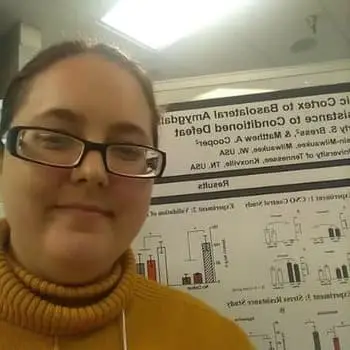Cocaine leads to anxiety, but for some people anxiety also leads back to cocaine. Find out more about this vicious cycle here.
Cocaine and anxiety have a long history. It is well-established in science and medicine that cocaine, particularly withdrawal from cocaine, causes anxiety. Cocaine withdrawal is known for its dangerous effects on mood, and anxiety can be a product of these effects.
Conversely, anxiety can be a disorder that is difficult to cope with for some people, and they may turn to cocaine to help improve their mental state. This is a short-term solution that can lead down a harmful path of addiction and a co-occurring disorder.
Detailing the relationship between cocaine and anxiety can be a first step in recognizing a problem and seeking help.
Treatment Can Be Life Changing. Reach out today.

How Cocaine Causes Anxiety
How do stimulants cause anxiety? There are several reasons that stimulants, such as cocaine, cause anxiety:
Effects on Neurotransmitters
Which neurotransmitters are affected by cocaine? Cocaine neurotransmitters include serotonin, norepinephrine, and dopamine. Cocaine increases the amount of these neurochemicals available by inhibiting their reuptake. However, in the long term, this leads to a change in the neurotransmitter’s receptors such that there is a depletion of these neurotransmitter systems.
Anxiety Attacks
While a person is on cocaine, cocaine and anxiety attacks can be frequent. Research has even shown that cocaine is largely linked to panic attacks.
Anxiety-Inducing Side Effects
Cocaine use can be a cause of anxiety disorders. Essentially, cocaine use leads to insomnia and other physical side effects that can trigger anxiety disorders more readily, or lead to anxiety disorder-like symptoms.
Anxiety During Comedown
During the cocaine or coke comedown, anxiety is particularly likely to occur. This is because your brain is starting to crash from the lack of cocaine.
Anxiety During Withdrawal
Perhaps the most well-studied period of anxiety associated with cocaine use is during the withdrawal period. WIthdrawal anxiety is very common. This also has to due with the depletion of certain neurochemicals within your brain, as well as an overactivation of stress-related hormones and brain circuits.
Cocaine Dependence
Psychological dependence on cocaine is a real problem. Some people may become dependent on cocaine in an attempt to mask the cocaine-induced anxiety.
Cocaine-Use for Coping with Anxiety
Some people use cocaine in an attempt to self-medicate or cope with anxiety. But can stimulants help anxiety? The short answer is no; they do not. Stimulants do not work on the correct neurochemical systems to really help with anxiety. Although a person may feel better in the short term, this is probably associated more with the euphoria or high of cocaine use rather than an actual anti-anxiety effect.
Dual-Diagnosis Treatment
People who struggle with addiction, including addiction to cocaine, oftentimes have a psychiatric or mental health condition such as depression or an anxiety disorder that precedes their drug use. For example, stress often precedes mental illness as well as facilitates cocaine-seeking behaviors. Co-occurring disorders, sometimes referred to as dual diagnosis, refers to combined mental health and substance use disorders. A dual diagnosis can make cocaine addiction particularly hard to treat.
Dual diagnosis treatment centers strive to address both issues (mental health and addiction) at the same time by using a multidisciplinary approach. This sort of treatment plan typically involves going through medical detox, inpatient rehab, intensive outpatient rehab, and outpatient rehab, but with a focus on treating both disorders. Treating co-occurring disorders is necessary to heal fully from addiction and manage mental illness.
There are even dual diagnosis treatment centers in Florida. If you or a loved one are struggling with addiction to cocaine or a co-occurring disorder of cocaine use and anxiety, specialized help from The Recovery Village Palm Beach at Baptist Health is always available. Contact us today to learn what personalized, confidential services we offer.











